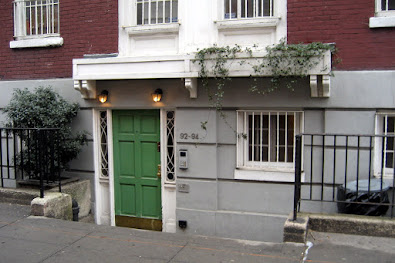Buy buy, says the sign in the shop window.
Why why, says the junk in the yard.
Why why, says the junk in the yard.
— Paul McCartney
In the 14th century, the English word junk meant "old rope." British boat builders repurposed junk as caulk, threading it throughout hulls to ensure they didn't leak. The word was borrowed from the Latin iuncus, meaning "reed."
The meaning of junk was extended over the next three centuries to include any "nautical refuse;" and, by the 19th century, to include any "refuse you can reuse." Trash—an Old Norse word meaning "deadfall"—was worthless, junk was not.
Junker, meaning a "beat-up car," is an Americanism that came into use in the 20th century. I once asked my late father-in-law, a native Mississippian, why Southerners always kept junkers in their front yards. He patiently explained that, in the South, when cars ceased to work, they automatically became storage lockers for spare parts.
Up North, where I grew up, we were less practical: we hauled junkers to the junkyard. And we called them not junkers, but jalopies. Jalopy is another 20th century Americanism. In the 1920s, longshoremen in New Orleans called the abandoned cars they shipped to the junkyards of Jalapa, Mexico, jalopies. The name stuck.
I'm not currently a member of the committee, but I would love to be. Were I a member, I would print business cards bearing the title "Commissioner of Good Taste." That's a job I've wanted for as long as I can remember.
Italians have Commissioners of Good Taste. They work for regional governments and ensure local builders and residents don't junk up the piazzas and side-streets of their picturesque, ancient towns.
If Italy can have Commissioners of Good Taste, why can't my HOA? I'd make it my mission to apply the brakes to what Edith Wharton called the "general decline of taste," and would use the power of my office to arrest shoddiness in all its manifestations—beginning with junk journalism.
Today I encountered this dreck in the morning news: "Governments in several countries used the pandemic to consolidate control, squashing opposition press or social media."
The journalist should know you squash a bug, but you quash an opponent. Squash means "to flatten;" quash, "to suppress."









